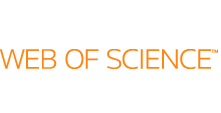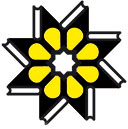Related Research Articles
A citation index is a kind of bibliographic index, an index of citations between publications, allowing the user to easily establish which later documents cite which earlier documents. A form of citation index is first found in 12th-century Hebrew religious literature. Legal citation indexes are found in the 18th century and were made popular by citators such as Shepard's Citations (1873). In 1960, Eugene Garfield's Institute for Scientific Information (ISI) introduced the first citation index for papers published in academic journals, first the Science Citation Index (SCI), and later the Social Sciences Citation Index (SSCI) and the Arts and Humanities Citation Index (AHCI). The first automated citation indexing was done by CiteSeer in 1997 and was patented. Other sources for such data include Google Scholar and Elsevier's Scopus.
Scopus is Elsevier’s abstract and citation database launched in 2004. Scopus covers nearly 36,377 titles from approximately 11,678 publishers, of which 34,346 are peer-reviewed journals in top-level subject fields: life sciences, social sciences, physical sciences and health sciences. It covers three types of sources: book series, journals, and trade journals. All journals covered in the Scopus database, regardless of who they are published under, are reviewed each year to ensure high quality standards are maintained. Searches in Scopus also incorporate searches of patent databases. Scopus gives four types of quality measure for each title; those are h-Index, CiteScore, SJR and SNIP.
Google Scholar is a freely accessible web search engine that indexes the full text or metadata of scholarly literature across an array of publishing formats and disciplines. Released in beta in November 2004, the Google Scholar index includes most peer-reviewed online academic journals and books, conference papers, theses and dissertations, preprints, abstracts, technical reports, and other scholarly literature, including court opinions and patents. While Google does not publish the size of Google Scholar's database, scientometric researchers estimated it to contain roughly 389 million documents including articles, citations and patents making it the world's largest academic search engine in January 2018. Previously, the size was estimated at 160 million documents as of May 2014. An earlier statistical estimate published in PLOS ONE using a Mark and recapture method estimated approximately 80–90% coverage of all articles published in English with an estimate of 100 million. This estimate also determined how many documents were freely available on the web.
The h-index is an author-level metric that attempts to measure both the productivity and citation impact of the publications of a scientist or scholar. The h-index correlates with obvious success indicators such as winning the Nobel Prize, being accepted for research fellowships and holding positions at top universities. The index is based on the set of the scientist's most cited papers and the number of citations that they have received in other publications. The index can also be applied to the productivity and impact of a scholarly journal as well as a group of scientists, such as a department or university or country. The index was suggested in 2005 by Jorge E. Hirsch, a physicist at UC San Diego, as a tool for determining theoretical physicists' relative quality and is sometimes called the Hirsch index or Hirsch number.

Inventiones Mathematicae is a mathematical journal published monthly by Springer Science+Business Media. It was established in 1966 and is regarded as one of the most prestigious mathematics journals in the world. The current managing editors are Camillo De Lellis and Jean-Benoît Bost.

The Middle East Journal is a quarterly peer-reviewed academic journal published by the Middle East Institute. It was established in 1947 and covers research on the modern Middle East, including political, economic, and social developments and historical events in North Africa, the Middle East, Caucasus, and Central Asia. The editor-in-chief is Michael Collins Dunn.
The Science Citation Index (SCI) is a citation index originally produced by the Institute for Scientific Information (ISI) and created by Eugene Garfield. It was officially launched in 1964. It is now owned by Clarivate Analytics. The larger version covers more than 8,500 notable and significant journals, across 150 disciplines, from 1900 to the present. These are alternatively described as the world's leading journals of science and technology, because of a rigorous selection process.
Journal ranking is widely used in academic circles in the evaluation of an academic journal's impact and quality. Journal rankings are intended to reflect the place of a journal within its field, the relative difficulty of being published in that journal, and the prestige associated with it. They have been introduced as official research evaluation tools in several countries.
The FEBS Journal is a biweekly peer-reviewed scientific journal published by John Wiley & Sons on behalf of the Federation of European Biochemical Societies. It covers research on all aspects of biochemistry, molecular biology, cell biology, and the molecular bases of disease. The editor-in-chief is Seamus Martin, who took over from Richard Perham in 2014.

The Islamic Azad University, Rasht Branch is an Iranian university in Rasht, Gīlān Province. It was founded on 1 September 1982.

Web of Science is a website which provides subscription-based access to multiple databases that provide comprehensive citation data for many different academic disciplines. It was originally produced by the Institute for Scientific Information (ISI) and is currently maintained by Clarivate Analytics.
Acta Crystallographica is a series of peer-reviewed scientific journals, with articles centred on crystallography, published by the International Union of Crystallography (IUCr). Originally established in 1948 as a single journal called Acta Crystallographica, there are now six independent Acta Crystallographica titles:
The Scientific World Journal is a peer-reviewed scientific journal covering fields in the life sciences ranging from biomedicine to environmental sciences. It was established in 2001 and is published by Hindawi Publishing Corporation. The journal was delisted in the 2015 Journal Citation Reports because of "anomalous citation patterns".

The Journal of Sol-Gel Science and Technology is a monthly peer-reviewed scientific journal covering research on sol-gel materials. Recent findings on new products developed via chemical nanotechnology are also included.

Regional Information Center for Science and Technology (RICeST) is an Iranian governmental organisation established to promote the production and distribution of scientific information in Iran and Islamic countries, providing reference, study and bibliographical information and related services. It also undertakes scientometrics based on its databases of scientific products of Iran and Islamic countries.
The International Journal for the Psychology of Religion is a peer-reviewed academic journal devoted to research on the psychology of religion. Its scope includes the social psychology of religion, religious development, conversion, religious experience, religion and social attitudes and behavior, religion and mental health, and psychoanalytic and other theoretical interpretations of religion. The current editor-in-chief is Heinz Streib . As of 2020, the book review editors were Katarzyna Skrzypińska and W. Paul Williamson.
The Journal of Shi'a Islamic Studies is a quarterly peer-reviewed academic journal covering research on Shia Islam, including theology, philosophy, mysticism, law, jurisprudence, politics, history, Qur'an and Hadith studies, and current issues relevant to Shi'ism. It is published by ICAS Press on behalf of The Islamic College and was established in 2008. The journal also contains a book reviews section to review new and old works pertaining to Shi'a Islam.
Russian Science Citation Index is a bibliographic database of scientific publications in Russian. It accumulates more than 13 million publications of Russian authors, as well as information about citing these publications from more than 5000 Russian journals. The Russian Science Citation Index has been developed since 2005 by the Scientific Electronic Library eLIBRARY.RU. The information-analytical system Science Index is a search engine of this database; it offers a wide range of services for authors, research institutions and scientific publishers. It is designed not only for operational search for relevant bibliographic information, but is also as a powerful tool to assess the impact and effectiveness of research organizations, scientists, and the level of scientific journals, etc.

The World Journal of Urology is a peer-reviewed scientific journal of urology published by Springer in collaboration with the Société Internationale d'Urologie (SIU). It is the official journal of both the Société Internationale d'Urologie and of the Urological Research Society.

Deep Sea Research is a peer-reviewed academic journal of deep sea research was established in 1953 by Pergamon Press. In 1962, it renamed itself Deep Sea Research and Oceanographic Abstracts, and returned to the Deep Sea Research title in 1977. In 1978, it split into two journals Deep Sea Research Part A: Oceanographic Research Papers and Deep Sea Research Part B: Oceanographic Literature Review. In 1993, Part A split into Deep Sea Research Part I: Oceanographic Research Papers and Deep Sea Research Part II: Topical Studies in Oceanography, while Part B was discontinued.
References
- ↑ Wagdy Sawahel (17 October 2008). "Islamic countries to get own science citation index". SciDev.Net.
- ↑ Ahmed Rostom (August 2009). "The Islamic World Science Citation Database partnership with Scopus brings greater visibility to Islamic researchers". Library Connect . 7 (3). ISSN 1549-3725. Archived from the original on 2011-07-10. Retrieved 2009-10-22.